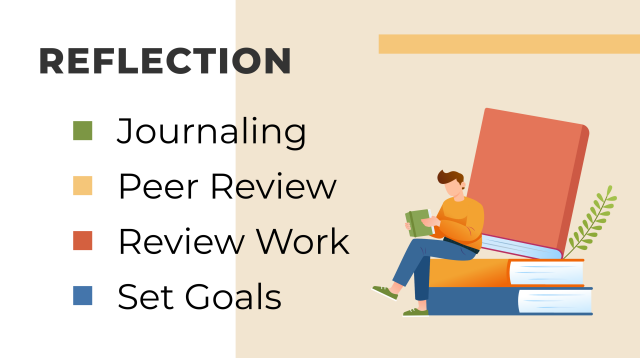
Reflecting on Writing

In this unit, we will explore the significance of reflection in the writing process. Reflection is a crucial element of becoming a better writer as it allows you to evaluate your progress, identify areas for improvement, and celebrate your successes.
Learning Objectives
By the end of this unit, you will:
- Understand the importance of reflection in the writing process.
- Recognize how reflection can lead to personal growth as a writer.
- Learn strategies for effective reflection on your own writing.
The Role of Reflection
Reflection in the writing process involves taking the time to think critically about your work. It’s not just about looking for grammar errors or typos; it’s about considering the content, organization, and overall effectiveness of your writing. Reflection allows you to assess your writing’s strengths and weaknesses and make informed decisions about how to improve.
Why Reflect?
- Self-Discovery: Reflection helps you better understand your writing style, preferences, and tendencies. It’s an opportunity to discover what works best for you as a writer.
- Growth: Reflecting on your writing journey can lead to personal growth. You’ll learn from your mistakes, build on your successes, and become a more skilled and confident writer.
- Improved Writing: By identifying areas that need improvement through reflection, you can take targeted steps to enhance your writing skills.
Strategies for Effective Reflection
- Regular Journaling: Maintain a writing journal where you record your thoughts, ideas, and challenges you face while writing. Document your writing process, the issues you encounter, and your solutions.
- Peer Review: Engage in peer review sessions where you and your peers provide feedback on each other’s work. This collaborative approach to reflection allows you to gain insights from multiple perspectives.
- Review Past Work: Revisit your previous essays and writing projects. Analyze how you’ve evolved as a writer, what you’ve improved upon, and areas that still need work.
- Set Goals: Use reflection to set specific writing goals. Whether it’s mastering a new genre or refining your grammar skills, having clear objectives will guide your writing journey.
